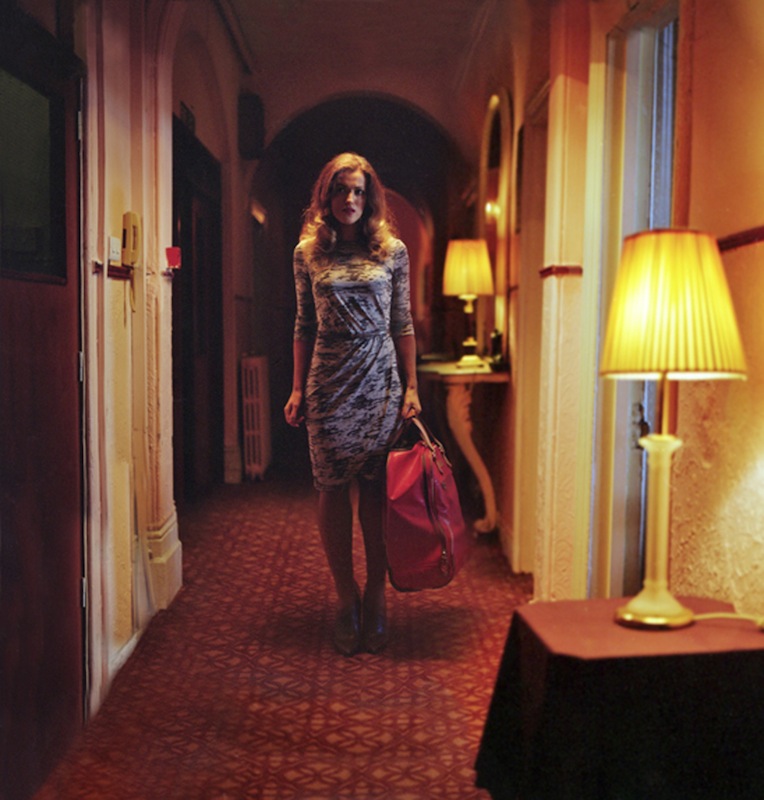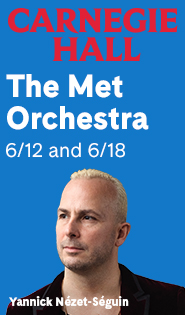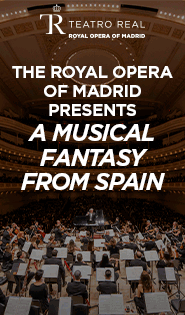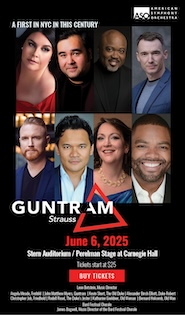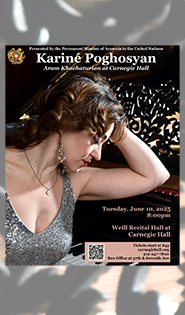Death doesn’t become “The Last Hotel” at PROTOTYPE festival
The PROTOTYPE festival of new opera and drama is bursting open this week, and Friday night at St. Ann’s Warehouse, the festival presented one of this year’s marquee events, the U.S. premiere of The Last Hotel. This is a skillful, intelligent, and ultimately troubling collaboration between writer/director Enda Walsh and composer Donnacha Dennehy.
The Last Hotel is a conventional, modern narrative opera with a story that is uncommon, and with a few formal quirks. Of the latter, it begins like a play, with several minutes of spoken dialogue before the first note. Once the singing starts, though, it continues to the end with only a few moments of further dialogue.
There are three principal characters: Woman, Husband, and Wife, played by soprano Claudia Boyle, baritone Robin Adams, and soprano Katherine Manley, respectively. There is also the Porter (Mikel Murfi), an enigmatic supernumerary who mainly serves as a foil for the characters and, at times, the music itself.
The three principals meet at a one-room, one-floor (albeit the fourth) hotel, which will be the last hotel of the title for the Woman. She has come to kill herself, aided by the Husband and Wife, for whom this is apparently a line of work.
Dennehy’s score is tonal and smoothly propulsive. The foundation is a strong pulse that he shifts around a grid-like surface made with an accumulation of short, repeated phrases. While he generally shies away from harmonic modulation as a dramatic device, his rhythmic acumen turns prose into shapely phrases, and under long, lyrical, sustained vocal lines, his active accompaniment builds appreciable expressive and emotional force.
The eleven-piece chamber group was filled with some of the notable names from the leading new music ensembles, including violinist Courtney Orlando, violist Nadia Sirota, cellist Clarice Jensen, and accordionist Nathan Koci. Musicians and singers were led with cool precision by André de Ridder (Alan Pierson takes over as conductor for the final four shows).
Walsh’s libretto never explicitly exposes why the Woman wants to commit suicide, but outlines her existential despair with a keen allusiveness that gives Dennehy plenty of room to fill with the ache of anticipation and regret. There are hints of the abrading self-loathing of depression, and there is evidence that she is losing her family, and that they have no empathy for her.
The audience is gradually drawn in by the libretto, the music, and the performances; as Dennehy pulls everything along, Walsh accumulates details and clues about the characters that elicit mounting waves of empathy. The tension also grows to an acute point, as the characters eat, drink, think, remember, and circle around the main event. It’s emotionally powerful.
Boyle, Adams, and Manley are fine operatic singers who can express shifting thoughts and feelings through their voices. When the music stops in time for an aria like the Wife’s “Breath deep,” it is gorgeous and enthralling. Everything is edged by a sense of foreboding about the inevitable outcome, made stunningly real by a distressing scene where the suicide is rehearsed.
The production’s physical quality is a strong component. The work of set and costume designer Jamie Vartan and lighting designer Adam Silverman mixes normalcy and chaos in a way that touches on J.G. Ballard and David Cronenberg, and that supports the libretto on a psychological level.
Another veiled literary reference is The Odyssey. The libretto drops the word “Ithaca,” and in the story of a woman who is terribly lost, this has disproportionate weight.
But this is an Ithaca of the mind, and it is just what constitutes home that turns out to be repugnant in a way that turns everything that preceded it into a slick manipulation.
There is no gimmicky shock—when death comes it happens behind a curtain. Then the Husband and Wife leave the hotel, and the Wife sings; she is haunted by the dead. The Woman joins in, and their independent lines become a duet, then two voices singing the same phrase. This is all in a major key, full of the kind of cadences on rising intervals that signify feel-good music.
The foreboding the opera builds is palpable and moral, inherent to the visceral and morally wrenching reaction to the idea of suicide, dreading it while also being compelled by the drama. When it comes, it’s in C major, suicide as a diatonic resolution to the deepest existential crisis, a neat cadence that comes with a violent drunk suffocating you with a plastic bag.
The Last Hotel runs through January 17 prototypefestival.org
